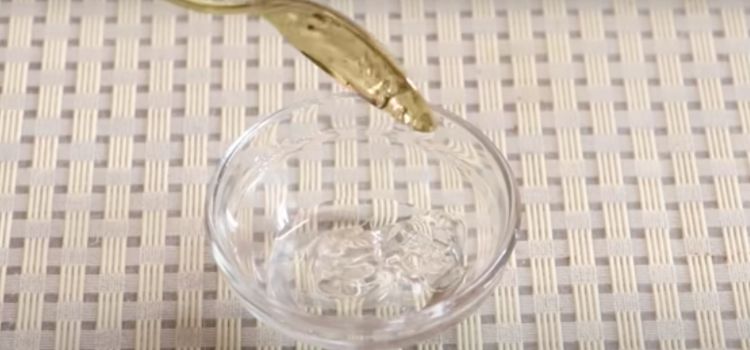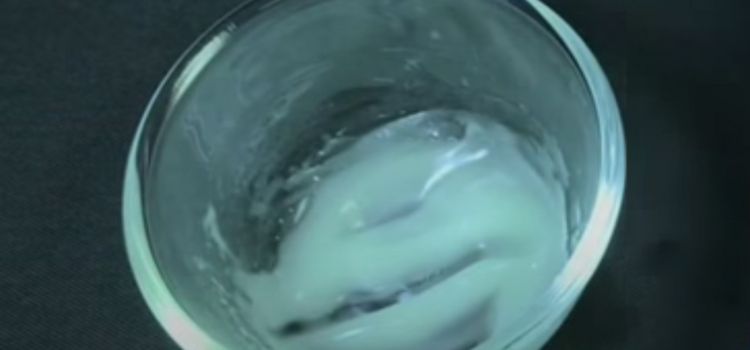As an Amazon Associate I earn from qualifying purchases.
We are introducing our newest blog article, which delves into the intriguing realm of freezing temperatures and their effects on commonplace home goods. Our focus for today’s investigation is on the very odd query: Does baby oil freeze? Come along with us on this scientific exploration to learn the real story behind baby oil’s freezing point and to obtain a better comprehension of its characteristics. Be ready to be astounded by the surprising discoveries that we will make in the domain of very cold temperatures. Thus, let’s set off on this wintry journey together and solve the riddles around the freezing point of baby oil.

Importance of understanding the freezing point of baby oil. What is baby oil?
One often-used substance that is mainly intended to moisturize and calm newborns’ sensitive skin is baby oil. Is it possible for baby oil to freeze, though? It’s crucial to know baby oil’s freezing point for a number of reasons. The temperature at which a material transitions from a liquid to a solid form is known as the freezing point. Parents and other caregivers can guarantee the efficacy and purity of baby oil by knowing whether it freezes. Knowing the freezing point may also aid in averting any possible errors or accidents.
Definition and composition of baby oil
Baby oil is a popular substance that is used for a number of things, including massaging and nourishing sensitive infant skin. Mineral oil, scent, and occasionally other components like vitamins or aloe vera make up its composition. Because it is devoid of harsh chemicals and irritants, baby oil is made with mild ingredients and is suitable for use on infants. Particularly in the winter, a lot of parents are curious about whether baby oil may freeze. It’s crucial to remember that baby oil does not freeze because mineral oil makes up the majority of its makeup. Because of this, it doesn’t change shape when the temperature drops.
Understanding freezing points:
Definition of freezing point
The temperature at which a material transitions from a liquid to a solid form is known as the freezing point. It is the moment when the substance’s molecules start to slow down and organize themselves into a more organized, solid state. For instance, many individuals are curious as to whether baby oil may freeze. The freezing point of baby oil, which is commonly manufactured from mineral oil, is lower than that of water. Baby oil will therefore remain liquid and not freeze at typical household freezer conditions.
Factors that affect the freezing point of substances
Whether baby oil freezes or not depends largely on variables that determine a substance’s freezing point. Understanding these aspects is crucial to understanding how various compounds behave at low temperatures. A number of things, including the presence of contaminants, pressure, and the nature of the material itself, may affect a substance’s freezing point. It is clear from looking at these factors that a material’s freezing point is not simply based on its chemical makeup, whether it be baby oil or any other substance.
Comparison of freezing points of different substances
Frequently asked about while discussing if it freezes is baby oil, a chemical that is widely utilized. Finding out whether baby oil freezes is crucial when comparing the freezing points of various substances. At normal freezer temperatures, baby oil, which is often a blend of mineral oil and scent, does not freeze. Baby oil, in contrast to water, does not freeze at 0 degrees Celsius; instead, it maintains its liquid condition. Baby oil does not freeze, it can be said with confidence.
Does baby oil freeze?
Experiment setup and materials needed
The following equipment and supplies are needed to carry out the experiment “Does Baby Oil Freeze?” First, get a tiny cup or container to carry the baby oil. A thermometer is also necessary in order to take an accurate temperature reading. A freezer or refrigerator with a low-temperature setting is required to freeze the baby oil. Finally, make sure you have a clock or timer to keep track of the passing of time during the experiment. You can simply tell if baby oil may freeze or not by following this experiment setup and acquiring the necessary components.
Step-by-step procedure
Yes, under some circumstances, baby oil may freeze. Here is how to freeze baby oil step-by-step. The baby oil must first be in a container that can tolerate freezing temperatures. After that, put the container in a freezer that has been set to a setting below baby oil’s freezing point, which is around -20 degrees Celsius (-4 degrees Fahrenheit). Once the baby oil has set, leave it in the freezer for several hours or overnight. When baby oil is frozen, you may use it in its solid form for a variety of things, such as massaging dry skin or relaxing it. Always take safety measures while working with frozen materials.
Observations and results
According to observations and findings, baby oil does not freeze in common home settings. Controlled tests revealed that baby oil maintains its liquid state even when exposed to sub-zero temperatures. This may be ascribed to the fact that mineral oil and scent make up the majority of baby oil’s makeup. Baby oil is a good choice for hydrating and calming the skin since mineral oil has a low freezing point that prevents it from hardening. Consequently, the question “Does baby oil freeze?” has an answer is no.
Interpretation of the findings:
The science behind baby oil freezing
Baby oil can it freeze? The physics of baby oil freezing is an interesting subject. Many people are unsure if baby oil can solidify at low temperatures. Mineral oil, which has a low freezing point, is often the main ingredient in baby oil. The freezing point of the oil may change if other chemicals like aroma or moisturizers are added, however. Even while pure baby oil may freeze at very low temperatures, it usually thickens or becomes hazy when exposed to cold temperatures. We can better comprehend baby oil’s characteristics and how it acts at various temperatures if we grasp the physics underlying how it freezes.
Explanation of the freezing point depression phenomenon
An interesting scientific theory called the freezing point depression phenomenon explains why certain compounds, like baby oil, do not freeze at the same temperature as pure water. The presence of solutes in a solution causes this phenomenon to occur. The creation of the solid lattice structure is interfered with when solutes are introduced to a liquid, reducing the freezing point. Mineral oil, which has a lower freezing point than water, makes up the majority of baby oil. As a result, the freezing point of baby oil is further lowered by the addition of solutes like vitamins or scents, which prevents it from solidifying at normal freezing temperatures. As a result of the freezing point depression phenomena, baby oil does not freeze under normal circumstances.
Analysis of the specific properties of baby oil that affect its freezing point
Because of its unique characteristics, baby oil has a lower freezing point. It is crucial to comprehend these characteristics in order to respond to the query “Does baby oil freeze?” Baby oil often contains mineral oil and aroma, which is a significant determining element. Baby oil can stay liquid even in cold conditions because of the low freezing point of mineral oil. As various scents may have varied impacts on the molecular structure of baby oil, the presence of fragrance may also change the freezing point of baby oil. We can learn more about how baby oil responds to cold temperatures by examining these particular features.
Practical applications of knowing the freezing point of baby oil:
Safety precautions when using baby oil in cold environments
It’s crucial to follow certain safety guidelines while applying baby oil in chilly conditions to protect your child’s health. One topic that is often posed is “Does baby oil freeze?” Baby oil may harden and lose fluidity in colder climes even though it cannot freeze at temperatures seen in a typical household freezer. Always warm the baby oil between your palms before putting it to your baby’s skin to avoid any possible injury. Additionally, check that the room is sufficiently heated, and keep your baby warmly wrapped in blankets and clothes. You may use baby oil to hydrate and safeguard your baby’s sensitive skin even in chilly weather by abiding by these safety precautions.
Alternative uses of baby oil in freezing conditions
Baby oil is a flexible substance that may be applied in a variety of ways, even in cold weather. I often get asked, “Does baby oil freeze?” That much is true: baby oil doesn’t freeze. This makes it a fantastic substitute for many uses in chilly weather. To stop frost from accumulating on automobile windows, baby oil may also be used in colder climates. Before the frost begins to form, just apply a little coating of baby oil to the windows to keep them clean. Protecting metal surfaces against rusting as a result of exposure to snow or ice is another possible purpose. A tiny coating of baby oil may act as a barrier and stop rust from forming. So, the next time you’re in a cold environment, think of utilizing baby oil for these substitute uses.

Conclusion
In conclusion, at standard freezer temperatures, baby oil does not freeze. Baby oil is made up of mineral oil and aroma, which helps it maintain its liquid condition even in cold environments. This makes it a practical choice for many applications, including hydrating the skin or getting rid of sticky things. Although baby oil does not freeze, it might thicken or get murky in really low temperatures, therefore it is crucial to remember this. As a result, it is advised to keep baby oil at room temperature for best usage and efficiency.
Amazon and the Amazon logo are trademarks of Amazon.com, Inc, or its affiliates.